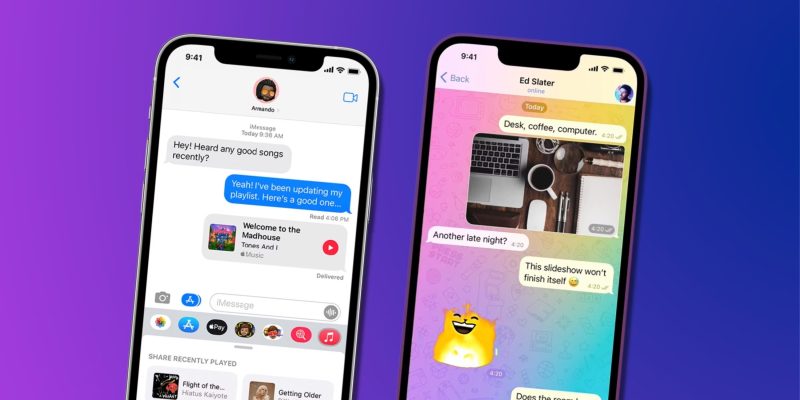Privatenote is a secure messaging app that strongly focuses on privacy and encryption. The app ensures that only the intended recipient reads the messages and offers a range of features to protect user data. The strength of end-to-end encryption is that messages are encrypted on the sender’s device and can only be decrypted by the recipient’s device, making it nearly impossible for unauthorized parties to intercept and read messages. Privatenote users can set a password, fingerprint, or facial recognition lock, adding an extra layer of security to the app. Even if someone gains access to your device, they need the correct authentication to read your messages.
Privatenote with other encrypted messaging apps
Signal
Signal is the the most well-known and respected encrypted messaging app. Like Privatenote, Signal also uses end-to-end encryption to secure messages, ensuring privacy. One of Signal’s key strengths is its open-source nature, allowing security experts and researchers to review the app’s code for potential vulnerabilities. This transparency has earned Signal a strong reputation for security and trustworthiness.
However, Privatenote excels in its additional security features. While Signal offers basic encryption, Privatenote goes further with self-destructing messages and multiple authentication options. Privatenote has a modern and intuitive user interface, making it easier for those new to secure messaging apps.
WhatsApp is another popular messaging app that has implemented end-to-end encryption for its users. With a massive user base, WhatsApp is a go-to choice for many. However, WhatsApp has recently come under fire for its data-sharing practices with its parent company, Meta (formerly Facebook). While messages are encrypted, other data, such as user behaviour and metadata, may be collected and used for targeted advertising.
What is Privnote used for? Privatenote is a more privacy-focused option. It does not collect or share user data; its additional security features ensure that your messages and data remain private. Privatenote is a cleaner, ad-free experience and a welcome change for those looking to escape the constant stream of ads on other platforms.
Telegram
Telegram is known for its focus on speed and security. While it offers end-to-end encryption, it is not enabled by default, and users must specifically opt for “secret chats” to utilize this feature. Telegram also provides a range of other features, such as file sharing and the ability to self-destruct messages.
However, one area where Privatenote pulls ahead is its ease of use and simplicity—Telegram for new users with its many features and settings. Privatenote offers a streamlined and intuitive interface accessible to a wider range of users. Privatenote’s focus on multiple forms of authentication adds an extra layer of security that is not found in Telegram.
Threema
Threema is a secure messaging app that, like Privatenote, strongly emphasizes privacy and security. Threema does not require a phone number or email address to sign up, protecting user anonymity. It also offers end-to-end encryption of additional security features, such as the ability to verify the integrity of the encryption by scanning QR codes.
While Threema provides robust security, Privatenote still offers a few unique advantages. Privatenote’s self-destructing messages and multiple authentication methods add an extra layer of protection. Additionally, Privatenote modern has a user-friendly interface, making it more accessible and easier for those who are less tech-savvy.










Comments